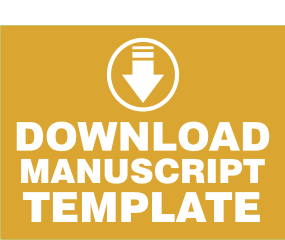The Relationship Of Students' Perceptions On Mathematics Lessons With Mathematics Learning Outcomes For Class V Students UPT SDN 11 Pangkajene, Sidrap Regency
(1) Universitas Negeri Makassar
(2) Universitas Negeri Makassar
(3) Universitas Negeri Makassar
(*) Corresponding Author
DOI: https://doi.org/10.26858/ijest.v2i1.30907
Abstract
Full Text:
PDFReferences
Ayu, C. (2017). Hubungan Motivasi Belajar Dengan Hasil Belajar Matematika Siswa Kelas Xi Ipa Sma N 1 X Koto Kabupaten Tanah Datar. Menara Ilmu, XI(74), 1–6.
Bhoke, W. (2017). Hubungan Antara Motivasi dengan Hasil Belajar Matematika Pada Siswa SMP, 2017(November), 236–242.
Desminta. (2012). Psikologi Perkembangan. Bandung: PT Remaja Rosdakarya.
Fitroh, M. I., & Sari, A. F. (2018). Pengaruh Persepsi Matematika Siswa Terhadap Hasil Belajar Siswa Di Smkn 1 Surabaya Tahun Ajaran 2017 / 2018. Jurnal Elektronik Pembelajaran Matematika, 5(2), 148–156.
Gani, A. (2016). Pengaruh Model Pembelajaran Dan Persepsi Tentang Matematika Terhadap Minat Dan Hasil Belajar Matematika Siswa Smp Negeri Di Kecamatan Salomekko Kabupaten Bone. Jurnal Daya Matematis, 3(3), 337. https://doi.org/10.26858/jds.v3i3.1700
Nainggolan, R., Alim, J. A., Nainggolan, R., & Alim, J. A. (2015). Hubungan Persepsi Siswa Dengan Motivasi Belajar Pada Mata Pelajaran Matematika Siswa Kelas IV Di Sekolah Dasar Negeri 163 Pekanbaru Hubungan Persepsi Siswa Dengan Motivasi Belajar Pada Mata Pelajaran Matematika Siswa Kelas IV Di Sekolah Dasar Negeri 163 P, 1–11.
Pagarra, H. (2016). Peningkatan Hasil Belajar Matematika Melalui Model Pembelajaran Problem Solving Pada Siswa Kelas V Sdn Kakatua Kecamatan Marisokota Makassar. Publikasi Pendidikan, 6(3). https://doi.org/10.26858/publikan.v6i3.2276
Pertiwi, N. . (2016). UNION: Jurnal Pendidikan Matematika Vol 4 No 2, Juli 2016, 4(2), 329–342.
Pratidiana, D. (2018). Pengaruh Penggunaan Media Powerpoint terhadap Hasil Belajar Matematika Siswa Kelas XII di MAN Pandeglang. Journal of Mathematics Learning, 1(2), 1–9. https://doi.org/10.30653/004.201812.16
Purwanto. (2014). Evaluasi Hasil Belajar. Yogyakarta: Pustaka Pelajar.
Rani, M. P. (2017). PRESTASI BELAJAR MATEMATIKA, 66–71.
Ridho, Faqih Muhammad; Ambarita, A. M. (2016). Hubungan Persepsi Peserta Didik Tentang Kompetensi Pedagogik Guru dengan Prestasi Belajar Matematika.
Sari, F. M., & Harini, E. (2015). Hubungan Persepsi Siswa Terhadap Mata Pelajaran Matematika Minat Belajar Dan Kemandirian Belajar Dengan Hasil Belajar Matematika. UNION : Jurnal Pendidikan Matematika, 3(1), 61–68.
Slameto. (2013a). Balajar dan Faktor- Faktor yang Mempengaruhi. Jakarta: Rineka Cipta.
Sudjana, N. (2009). Penilaian Hasil Proses Belajar Mengajar. Bandung: Remaja Rosdakarya.
Sugiyono, P. D. (2017). Metdode Penelitian Pendidikan (Pendekatan Kuantitatif, Kualitatif, dan R&D). Bandung: Alfabeta.
Susanto, A. (2013). Teori Belajar dan Pembelajaran Di Sekolah Dasar. Jakarta: Kharisma Putra Utama.
Susanto, A. (2016). Teori Belajar dan Pembelajaran Di Sekolah Dasar. Jakarta: Prenada Media.
Sutrisno, H. (2003). Metodologi Research. Yogyakarta: Gadjah Mada University Press.
Syamarro, N., Winarso, W., & Saluky, S. (2015). Pengaruh Motivasi Dan Persepsi Siswa Pada Matematika Terhadap Prestasi Belajar Matematika Siswa Kelas Viii Di Mts Al-Hidayah Dukupuntang Kabupaten Cirebon (Pokok Bahasan Kubus Dan Balok). Eduma : Mathematics Education Learning and Teaching, 4(2). https://doi.org/10.24235/eduma.v4i2.32
Syaripah. (2015). Pengaruh Persepsi Pembelajaran Matematika Terhadap Motivasi Belajar Siswa Dalam Bidang Matematika di Sekolah SMA N 1 Curup Timur. EduTech, 118. https://doi.org/https://dx.doi.org/10.30596%2Fedutech.v2i2.604
Widyaningsih, H. (2016). Persepsi Masyarakat Terhadap Kemampuan Soft Skills Mahasiswa Fik Unj Dalam Memasarkan Produk-Produk Olahraga. Publikasi Pendidikan, 6(3). https://doi.org/10.26858/publikan.v6i3.2269
Article Metrics
Abstract view : 92 times | PDF view : 16 timesRefbacks
- There are currently no refbacks.
Copyright (c) 2022 Nurul Azizah Bahar, sayidiman sayidiman, Suarlin Suarlin

This work is licensed under a Creative Commons Attribution-NonCommercial-ShareAlike 4.0 International License.
International Journal of Elementary School Teacher
ISSN 2776-6233 (online)
Email: ijes@unm.ac.id

This work is licensed under a Creative Commons Attribution-ShareAlike 4.0 International License.









